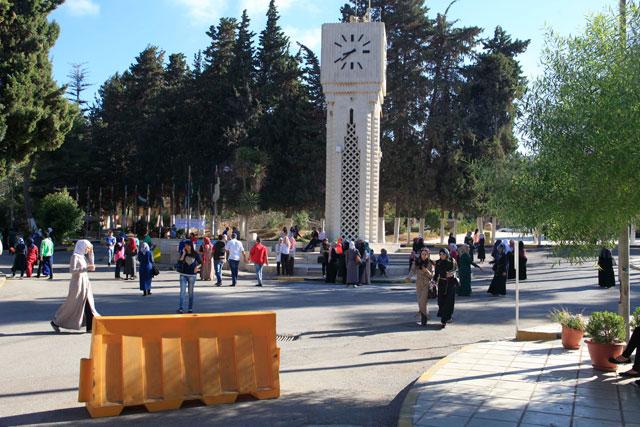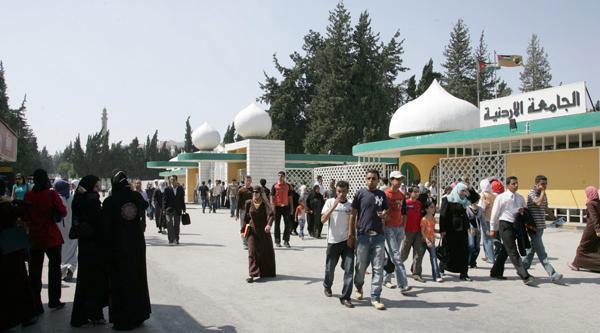You are here
Activists wary of granting law enforcement status to campus security as officials say move ensures safety
By Suzanna Goussous - Jan 05,2017 - Last updated at Jan 05,2017

The University of Jordan suspended classes on November 24, 2016, after a group of people, estimated to be around 200 individuals, stormed into campus (File photo)
AMMAN — As the Ministry of Higher Education examines a plan to give security personnel at universities law enforcement status, university students, activists and party representatives on Thursday said the move could negatively affect freedom of expression and movement on campuses.
Following clashes between students at the University of Jordan (UJ) in late November, Minister of State for Media Affairs Mohammad Momani said the Higher Education Ministry will submit a proposal to approve granting campus security the status of law enforcement officers.
UJ suspended classes on November 24, 2016, after a group of people, estimated to be around 200 individuals, stormed into campus in an act connected to a previous incident on campus in the same week. Some of them were carrying sticks and cleavers, according to eyewitnesses.
A source at UJ said the law will ensure a “safer” environment for students in case of violence, adding that there are no specific rules banning the enforcement of the law on campus, as “any problems which might happen [in universities] have their roots in wider society”.
But party representatives and student activists, have a different view. Jordan Communist Party Secretary General Faraj Tmeizeh said students with political affiliations “already face challenges on campus”.
“If they grant law-enforcement status to campus guards, students will face even more limitations, and the political scene in Jordan will witness an even sharper decline. Activism among students is sometimes already monitored and banned,” he argued.
Tmeizeh said enforcing the law on campuses will “limit freedoms”, noting that his party opposes “oppressing” students.
“Campus violence cannot be solved by adding written regulations. It can be addressed by changing the curricula in schools and universities to educate students, and by filling up students’ free time with activities which serve the community,” he told The Jordan Times.
Alaa Hajjeh, who is a member of Thabahtoona, the National Campaign for Defending Students’ Rights, said the law will have a negative impact on the student body and young activists “who seek change”.
“During our protests at [a local university], we were always threatened with suspension or arrest… That was before authorities thought of granting campus guards law-enforcement status. This decision, if applied, will decrease students’ political participation,” he added.
A second-year university student who requested anonymity said the law might tackle short-term issues, but will generate more problems on and off campus in the long run.
Waleed Rawaydah, public relations officer at Karak’s Mutah University, said that campus is a “space for students to learn”, adding that the university has not witnessed any form of violence for four years.
“For four years, we have been applying the university’s rules and regulations… We educated students politically and socially to develop a culture of mutual understanding, without giving security guards the position of law enforcement,” he told The Jordan Times.
Related Articles
AMMAN — The Lower House on Tuesday passed the 2018 public universities law under which security personnel at universities are granted condit
AMMAN — The National Campaign for Defending Students’ Rights (Thabahtoona) on Sunday issued a press statement expressing “shock” over
AMMAN — Suspensions and detentions of students who participate in activities to defend their rights or express their ideas has led to

















